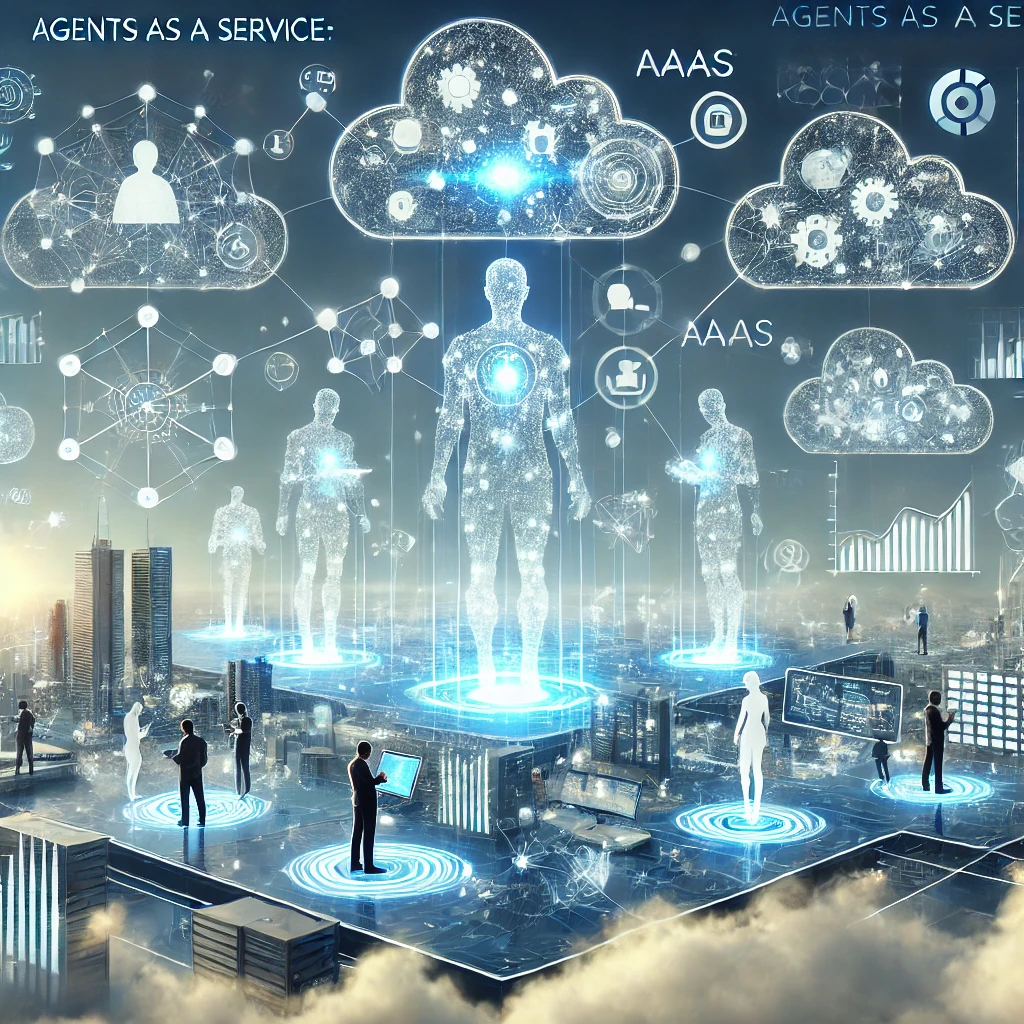The rise of artificial intelligence (AI) has ushered in a transformative era for cloud computing, with Agents as a Service (AaaS) emerging as the natural successor to Software as a Service (SaaS). Unlike SaaS, which delivers software tools via the cloud, AaaS leverages autonomous AI agents capable of executing complex tasks, making decisions, and adapting to user needs in real time. This paradigm shift promises to redefine industries, streamline workflows, and unlock unprecedented efficiency gains. Here’s a deep dive into the potential of AaaS and its implications for the future.
What is AaaS?
AaaS integrates AI agents—programs equipped with reasoning engines, knowledge bases, and planning modules—into cloud-based platforms. These agents operate autonomously, using natural language processing (NLP) and machine learning (ML) to interact with users, automate workflows, and even collaborate with other agents (multi-agent systems) to solve problems. For example, an AaaS-powered travel agent could book flights, reserve hotels, and adjust itineraries based on real-time data, all without human intervention.
Key Potentials of AaaS
1. Intelligent Automation at Scale
AaaS transcends the limitations of SaaS by replacing manual workflows with AI-driven autonomy. While SaaS tools like CRMs or project management platforms require human input, AaaS agents can independently manage tasks such as customer support, marketing campaign optimization, or financial reporting. For instance, AI agents in customer service can resolve complex technical issues by accessing OEM knowledge bases, reducing reliance on human technicians. This shift could enable startups to scale operations with minimal staffing—imagine a unicorn company managed by just 10 employees.
2. Hyper-Personalized Experiences
AaaS agents excel at delivering tailored solutions by continuously learning from user behavior. Unlike SaaS platforms that offer static customization, AaaS dynamically adapts to individual preferences. For example, a healthcare AaaS agent could analyze patient data to recommend personalized treatment plans, while a retail agent might curate product suggestions based on real-time shopping habits.
3. Industry-Specific Disruption
Vertical AI agents are poised to dominate niche markets. In customer service, companies like Parallel are automating entire support teams, while in HR, AI agents handle recruitment, onboarding, and payroll. Facilities management and manufacturing sectors are adopting AaaS for predictive maintenance, where agents monitor equipment health and preempt failures. Even creative industries are experimenting with AI agents for content generation and campaign management.
4. Outcome-Based Business Models
AaaS introduces innovative pricing strategies tied to results rather than subscriptions. For example, instead of paying per user for a SaaS CRM, businesses might pay based on leads generated or deals closed by AI agents. This aligns costs with value and incentivizes providers to optimize performance.
5. Democratization of Expertise
By integrating domain-specific knowledge (e.g., legal, medical, or engineering), AaaS makes expert-level assistance accessible to smaller businesses. For instance, a legal AaaS agent could draft contracts or analyze compliance risks, tasks traditionally requiring expensive consultants.
Challenges and Considerations
While AaaS holds immense promise, adoption barriers remain:
- Trust and Security: Autonomous agents accessing sensitive data raise concerns about breaches and misuse. Gartner predicts that by 2028, 25% of enterprise breaches will stem from AI agent vulnerabilities.
- Ethical Governance: Ensuring transparency in decision-making and avoiding biases in agent behavior requires robust frameworks.
- Technical Readiness: Many organizations lack the infrastructure to support agentic AI. Forrester estimates 75% of enterprises will fail initial AaaS implementations without consulting support.
The Future of AaaS
Microsoft CEO Satya Nadella envisions SaaS evolving into a “backend” for AI agents, providing foundational APIs and data services while agents handle user interactions. This symbiotic relationship will drive SaaS providers to embed AI capabilities, such as automated workflows and predictive analytics, into their platforms.
By 2030, Accenture predicts AI agents will become the primary users of enterprise systems, managing everything from supply chains to employee training. The result? A world where businesses operate at “the speed of conversation,” with AI agents seamlessly bridging human intent and digital execution.
Relevant Resources
- Agent as a Service (AaaS): The Future Beyond SaaS
- 微软 CEO预判:AI 智能体时代,SaaS 将被重塑
- Service Industry Predictions 2025
- AI Agents Spark Interest, Concern for Businesses in 2025
AaaS represents not just an upgrade to SaaS but a fundamental reimagining of how businesses operate. As AI agents evolve from tools to collaborators, organizations that embrace this shift will lead the next wave of innovation—transforming industries, enhancing productivity, and redefining human-machine synergy.
[SEO optimized]
